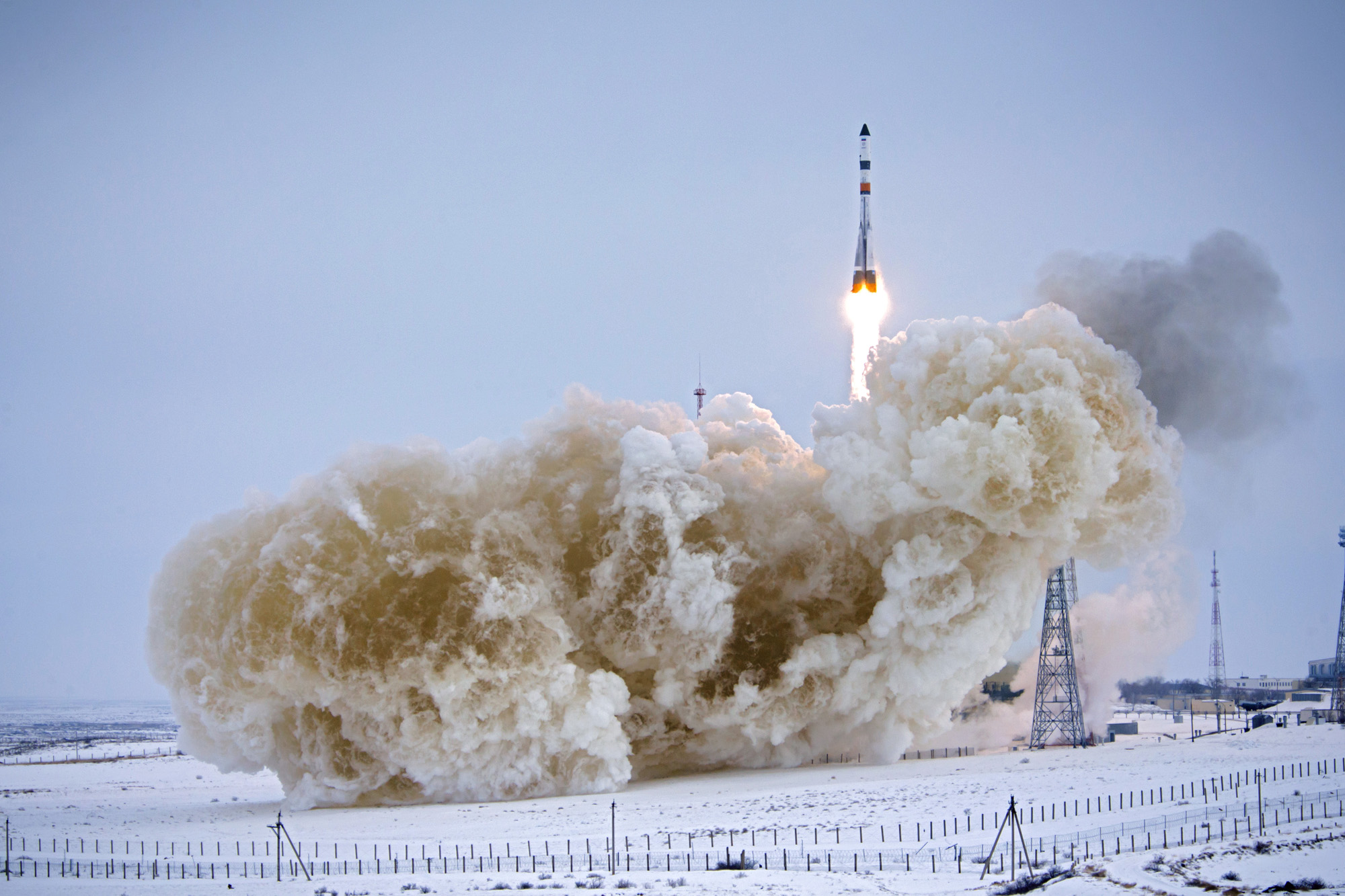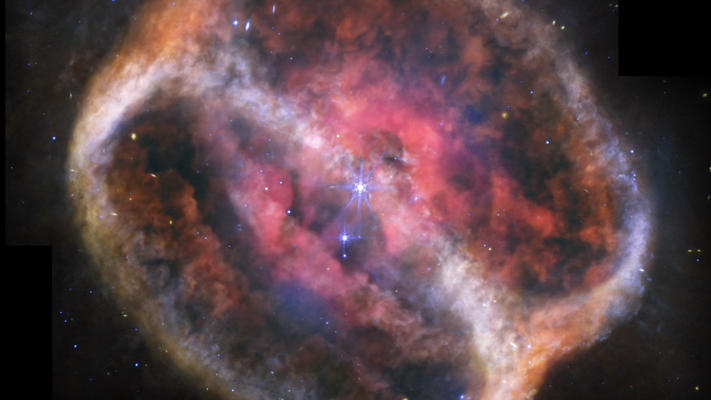Russian Cargo Ship Launches on 2-Day Flight to Space Station
A Russian Soyuz rocket launched an unpiloted cargo ship toward the International Space Station today (Feb. 13), kicking off a two-day delivery mission to the orbiting laboratory.
The Soyuz 2.1a rocket and the cargo ship Progress 69 lifted off at 3:13 a.m. EST (0813 GMT) from the Baikonur Cosmodrome in Kazakhstan, carrying about 3 tons of supplies for space station astronauts. The successful launch came two days after an unspecified problem triggered an abort in the final minute of an earlier launch try Sunday (Feb. 11).
"Less than 10 minutes after launch, the resupply ship reached preliminary orbit and deployed its solar arrays and navigational antennas as planned," NASA officials said in a statement. [How Russia's Progress Cargo Ships Work (Infographic)]
The Progress 69 cargo ship is now on track to arrive at the International Space Station early Thursday (Feb. 15). The spacecraft is scheduled to dock at the aft end of the station's Russian-built Zvezda Service Module at 5:43 a.m. EST (1043 GMT) Thursday.

Russia's Roscosmos space agency initially tried to launch Progress 69 on Sunday and attempt a new superfast flight plan that would send the cargo ship to the space station in just 3.5 hours. But an automated abort in the last minute of the countdown prevented that launch try. A similar abort prevented a previous cargo ship, Progress 68, from attempting the fast-track flight last October.
In recent years, Russia's Progress vehicles and Soyuz crew capsules have typically taken about 6 hours to reach the space station due to the orbital mechanics of those flights. Earlier in the station's history, Soyuz and Progress flights regularly took two days. That two-day flight profile is the one Progress 69 is following for its mission.
Progress 69 is packed with food, science gear and other vital supplies for the six-person Expedition 54 crew on the International Space Station. That cargo includes 3,128 lbs. (1,418 kilograms) of spare parts and other supplies; 1,940 lbs. (880 kg) of propellant; 53 lbs. (24 kg) of air; and 48 lbs. (21 kg) of oxygen.
Get the Space.com Newsletter
Breaking space news, the latest updates on rocket launches, skywatching events and more!
NASA will webcast Progress 69's arrival at the space station Thursday. You can watch that webcast live here, courtesy of NASA, beginning at 5 a.m. EST (1000 GMT).
Email Tariq Malik at tmalik@space.com or follow him @tariqjmalik and Google+. Follow us @Spacedotcom, Facebook and Google+. Original article on Space.com.
Join our Space Forums to keep talking space on the latest missions, night sky and more! And if you have a news tip, correction or comment, let us know at: community@space.com.

Tariq is the Editor-in-Chief of Space.com and joined the team in 2001, first as an intern and staff writer, and later as an editor. He covers human spaceflight, exploration and space science, as well as skywatching and entertainment. He became Space.com's Managing Editor in 2009 and Editor-in-Chief in 2019. Before joining Space.com, Tariq was a staff reporter for The Los Angeles Times covering education and city beats in La Habra, Fullerton and Huntington Beach. In October 2022, Tariq received the Harry Kolcum Award for excellence in space reporting from the National Space Club Florida Committee. He is also an Eagle Scout (yes, he has the Space Exploration merit badge) and went to Space Camp four times as a kid and a fifth time as an adult. He has journalism degrees from the University of Southern California and New York University. You can find Tariq at Space.com and as the co-host to the This Week In Space podcast with space historian Rod Pyle on the TWiT network. To see his latest project, you can follow Tariq on Twitter @tariqjmalik.









